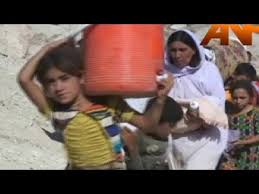By Candice LeSueur
A few months ago, I was informed a family had moved from Haiti into our area and needed help learning English. They were not living in the most ideal of circumstances and, therefore, fled their native country and arrived here via asylum.
It wasn’t hard to feel compassion for the four children and their parents the instant we heard about them. But as my friends and I have been visiting with them, helping them read books and learn English through videos and other resources, the love we feel for them only continues to expand and deepen. I can’t even convey the joy I feel inside that humble Haitian home.
The UN Refugee Agency reported that by the end of 2015, there were 65.3 million people forcibly displaced worldwide. For the first time, one in every 122 people have now been forced to flee their homes.
The refugee crisis was headline news before and right after President Obama pledged to take in 10,00 Syrian refugees by the end of the fiscal year. Recently, however, not much has been discussed, and we are falling behind schedule in placement efforts. Though this is the case, we cannot let ourselves forget that the wars still continue and families will still be arriving. Millions of refugees across the world are still in desperate need of help.
The Department of State released a list of 190 cities in the United States that will be receiving refugees, which encompass almost all of the fifty states. (See link: http://www.wrapsnet.org/Portals/1/Affiliate%20Directory%20Posting/FY%202014%20Affiliate%20Directory/21Nov14_Public%20Affiliate%20directory.pdf.) We are bound to come across refugees living near us soon, if we have not already.
Ban Ki Moon, United Nations Secretary General, gave this remark: “We are facing the biggest refugee and displacement crisis of our time. Above all, this is not just a crisis of numbers; it is also a crisis of solidarity.”
How can we gain solidarity with the refugees who have been and will continue to be placed where we live? Their children have been and will soon be attending school with our children. How can we make sure our kids are treating them kindly and spark friendships? It is crucial for the youth of refugee families to feel they are accepted amongst their peers as they study in classes and eat lunch together at school.
We can show our children by our example how to help refugees as we visit with them in their homes and invite them over for dinner. We can also help refugee families with everyday tasks that are normal for us but may be new for them, such as how to use washing machines, dishwashers, public transportation, etc.. We must remember that life skills that seem so mundane to us might be new for them. We can and must be sources for good for them as they try to orient themselves in lands that are so different from what they are used to.
Patrick Kearon, LDS church leader known for his civic involvement in Europe, suggested that “each one of us can increase our awareness of the world events that drive these families from their homes. We must take a stand against intolerance and advocate respect and understanding across cultures and traditions. Meeting refugee families and hearing their stories with your own ears, and not from a screen or newspaper, will change you. Real friendships will develop and will foster compassion and successful integration.”
Let us foster these real friendships and gain solidarity by going out of our way to find and help those families that have been displaced. As we help them become established here and also seek to learn about them and the accomplishments and contributions they made in their native lands, we will witness the blessing of charity grow in our lives and within our families. We will be a source of good by bringing refuge to our refugees.

